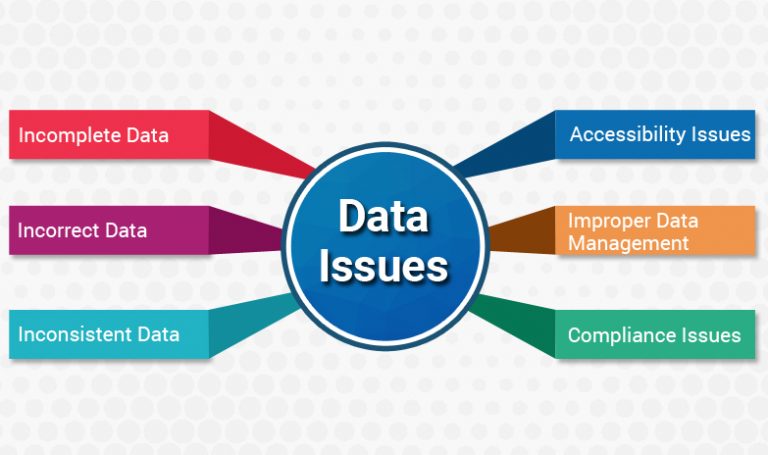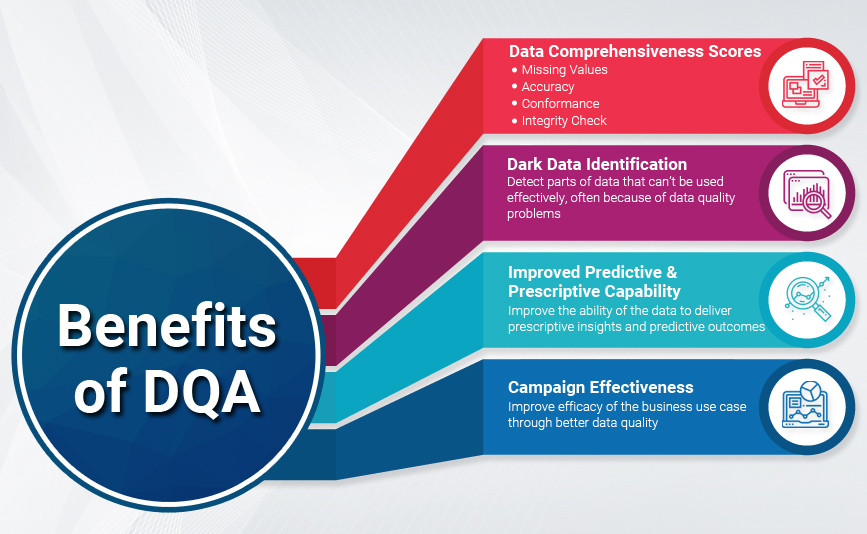Looking around us today, would it be really shocking to say that data is the new currency of the 21st century?
As the wave of digitization sweeps across the world, every sector of the industry is leveraging data to reap its manifold benefits. IT, Healthcare, Banking & Finance, Manufacturing, Retail, Pharmaceuticals – each of these sectors are relying on data in some way or the other. According to an IDC report, the Global Datasphere will expand from 33 ZB (zettabytes) in 2018 to a whopping 175 ZB by 2025.

The rapid growth of data is owing to the increasing “infusion of data into our business workflows and personal streams of life.” Increased online interactions, the use of social media, and the rising adoption of digital and IoT devices are the primary drivers of data.
The common problems faced with data
While data forms the core of business strategies and operations, often companies face data quality issues like:
- Incomplete and incorrect data – Often, it happens that data is not entered into the system correctly, or it is missing some variables. The lack of data correctness causes the data to get corrupted.
- Inconsistent data – When gathering data from multiple sources, it might be so that the same records may be stored multiple times in a database. The data may be stored in inconsistent formats, leading to faulty data analysis. Hence, data comprehensiveness is crucial.
- Accessibility issues – Since data passes through several layers (departments, sub-branches, and teams) in an organization, parts of it often end up getting compromised, thereby causing accessibility issues for the end-user.
- Improper data management – When a business handles vast amounts of data, data management issues become a challenge. Also, data decays at 2.2% per month. Due to this and the lack of regular upgrades, some data may get outdated and obsolete.
- Compliance issues – Today, it has become more important than ever that a company’s data adheres to the regulatory and compliance standards. When companies fail to do this, it causes enormous financial losses and compromises customer data. Remember the Cambridge Analytica scandal?
If these issues aren’t fixed promptly before the corrupt data is analyzed, it will lead to wrong insights, leading to bad business decisions. In the long run, it will negatively impact the ROI and the company’s marketing campaigns, causing it to lose valuable business opportunities. Also, it will cause customers to lose faith in the company, thereby damaging its reputation. This is why it is essential to invest in Data Quality Assessment.
The benefits of Data Quality Assessment
Data Quality Assessment ensures that your company data is carefully scanned, organized, validated, and free from any errors or anomalies. It has four significant benefits:

- Data Comprehensive Scores – Data Quality Assessment checks and examines the data to detect missing or incorrect values. It offers scores related to data accuracy, conformance, and integrity.
- Dark Data Identification – Data Quality Assessment can efficiently detect the data parts that cannot reap any benefits owing to various data quality issues.
- Enhanced Predictive & Prescriptive Capability – By carefully evaluating the data, Data Quality Assessment helps improve the data’s potential to deliver predictive outcomes and prescriptive insights.
- Campaign Effectiveness – Since Data Quality Assessment helps improve the data quality, ultimately, it helps to enhance the effectiveness of business/marketing campaigns.
Essentially, Data Quality Assessment is use-case specific. Thus, it can be done only when you can clearly identify the particular problem that you wish to address and create a problem statement definition. AISmartz ensures that your business data is quality-tested and validated. Since AISmartz incorporates Machine Learning in Data Analysis and AI in Data Management, our solutions help you identify trends and insights hidden within the data to foster data-driven decision-making for your business.
We’re here to make AI work for you.
Talk to our team today and start your AI journey. Whether you have questions about our services, need support, or want to discuss a potential project, our team is ready to help.
Social network
sales@netsmartz.com





